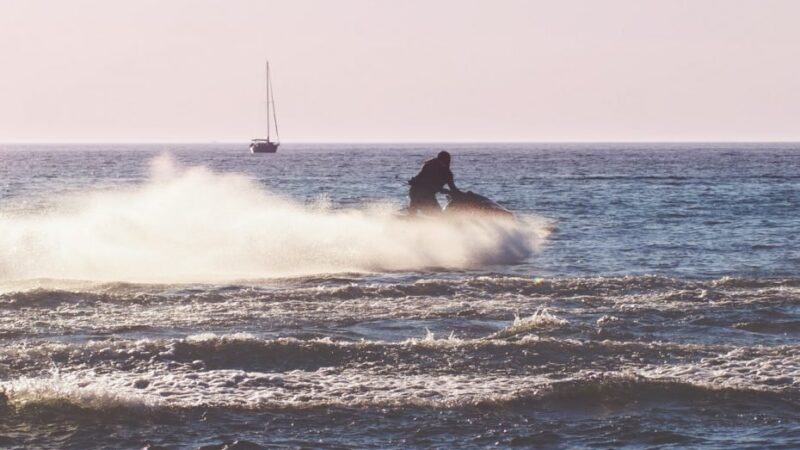MANILA, Philippines — This is one sporting season when picking the “best of the best” would merit no second look nor spark a series of debates.
For putting the country back on the Southeast Asian Games throne – in emphatic fashion – this brave bunch of athletes will be remembered in Philippine sports history as the finest, perhaps the greatest ever, in the country’s long participation in the regional sporting meet.
Gymnast Carlos Yulo and female boxer Nesthy Petecio looked headed to sharing the top honors at year’s end after being crowned world champions in October, until their fellow Filipino athletes stepped in, delivered and made it a celebration like no other, a moment to remember.
President Duterte conferred the distinguished Order of Lapu-Lapu, a recognition awarded to government officials, personnel and private citizens “in appreciation of invaluable or extraordinary service in relation to a campaign of advocacy of the President,” to the Pinoy athletes – all 1,084 of them – for their gallant effort and exploits in winning the coveted SEA Games overall championship for the first time in 14 years.
It was a glorious year for Philippine sports.
Here’s our Top 10 stories for 2019
01 SEA Games glory
From the shores and roads in Subic to the dance floor in Pampanga, the various gyms in cluster venues in Luzon, the boxing ring, the obstacle courses, the tracks and skate parks, the Filipino bets proved no gracious hosts, competition-wise, raking in the gold medals day-in, day-out through guts, fighting spirit and sheer determination.
With the proverbial home crowd providing the push and added motivation, the Pinoy athletes dominated the Games from the get-go, racking up 22 golds in Day One and never looking back on their way to hauling a total of 149-117-121 (gold-silver-bronze) tally, the country’s best showing in the biennial meet since topping the 2005 Manila edition with 112 gold medals.
The triathletes expectedly sparked the gold rush by sweeping not only the golds but also the silver medals as well. Then came the hosts’ exploits in wushu, gymnastics, arnis and sepak takraw, spiking their first-day romp with a 10-gold haul in dance sports.
Arnis and endurance sports sustained their charge and drew solid backup from the 3×3 basketball teams, the mountain bikers, a revered weightlifter and lawn bowlers as the Philippines almost doubled its first-day lead (12 golds) in Day Two that virtually set the stage for the country’s rise to SEAG fame once more.
Though the next four days saw the hosts slow down with 9-9-9-7 (gold) tallies, so did their rivals, and the Pinoy bets kept a sizeable distance from the chasing pack, which eventually scrambled for the crumbs of a runner-up finish.
The country’s gold medal machine came into fore again in Day 7 with victories coming from various corners, including skateboarding, taekwondo, paddle sports, karate, golf and athletics to all but wrap up the overall championship.
And this came about after a Pinoy surfer became the Games’ sensation for risking his medal chances to help save a fellow competitor, a heroic deed that even drew praises from Indonesian President Joko Widodo no less.
But elsewhere, it was all business for the Filipino athletes.
They kept their relentless drive in Day 8, stamping their class in combat sports, archery, windsurfing and in athletics with the men’s and women’s basketball teams, the jiu-jitsu artists, and those in athletics, billiards, soft tennis, kickboxing, eSports and shooting doing the mopping up operations for the country’s triumphant SEAG campaign.
With 14 golds, arnis emerged as the best performing NSA (national sports association) with officials hoping to convince the next SEAG host, Vietnam, which also captured a number of golds in the country’s national martial arts sport, to reconsider keeping arnis in the 2021 calendar.
Also coming up with solid campaigns were athletics (11 golds), dance sports (10), taekwondo (eight) and seven each from boxing and wushu with obstacle course racing sweeping all six golds staked in the debuting sports. Skateboarding also pocketed six golds while jiu-jitsu claimed five.
Other multiple gold winners were basketball, billiards, cycling, eSports, gymnastics, kickboxing, muay thai, rowing, sailing, soft tennis, triathlon, judo, shooting, fencing, karate, sambo, modern pentathlon, surfing, sepak takraw, waterskiing and wakeboarding, weightlifting, wrestling, and windsurfing while delivering at least one were swimming, archery, baseball, canoeing, duathlon, kurash, lawn bowls, pencak silat, rugby, softball, squash and tennis.
“This is a result of all the sacrifice and hard work of everyone who pushed for chances at victory,” said chef de mission and Philippine Sports Commission chairman William Ramirez.

Nesthy Petecio, Carlos Yulo, EJ Obiena
2 On top of the world
At a time when the country was desperately looking for a sporting hero in the year that’s about to end, the nation woke up and rejoiced to find not just one but two world champions in a span of 24 hours in late October.
Hours after young but talented Carlos Yulo bested the best in the world by dominating the floor exercise and capturing the World Artistic Gymnastics Championship crown in Germany, Nesthy Petecio blew past no less than a local bet to deliver the second world crown after snaring the featherweight crown in the AIBA World Boxing Championships in Russia.
While Yulo’s feat was the country’s first-ever world gymnastics gold, Petecio became the second Filipina world boxing champion after Josie Gabuco also toppled China’s Shiqu Xu, also on the latter’s turf in 2012.
Until the country’s triumphant, historic campaign in the SEA Games, from which Yulo and Petecio were also part of, the duo’s feats turned October as the country’s most productive month as far as winning gold in sports was concerned.
Yulo, 19, fashioned out his near implausible victory in faraway Stuttgart in a world event that drew 80-plus nations, flashing his immense talent honed and refined by a Japanese mentor in Tokyo while enthralling the audience and earning the nods of the judges.
In Ulan-Ude, Petecio, 27, also defied overwhelming odds, including a highly-partisan crowd, keeping her poise and delivering crucial blows to hack out a dramatic 3-2 decision over Liudmila Vorontsove in their three-round clash.
As world champions, the terrific tandem didn’t have a hard time imposing their will in the SEAG before home fans although Yulo had fallen short of his target of a seven-gold sweep by settling for two and five silvers.
Petecio, meanwhile, proved too tough, too classy for Myanmar’s New Ni Oo, coming away with a unanimous decision to clinch the gold, which she said felt like a World Championship.
“Winning the SEAG gold also felt like winning the World Championship. I’m so happy and felt very, very blessed,” said Petecio.
After the Worlds and the SEAG, Yulo and Petecio now gear up for their next, if not their biggest mission – the Olympics.
3 Road to Tokyo 2020
Pole vaulter EJ Obiena, boxer Eumir Felix Marcial and weightlifter Hidilyn Diaz also made the headlines this year as the troika came up with strong performances in the international front all in the month of September this year.
Obiena emerged the first Filipino to make it to next year’s Tokyo Olympics after he cleared the standard with 5.81 meters in a competition in Chiara, Italy.
The performance not only booked Obiena a spot to the quadrennial Summer Games, it also shattered the national record of 5.76m he himself set in the 30th Summer Universiade in Naples last July.
Marcial, for his part, came a win closer from becoming the third Filipino world champion of the year next to gymnast Caloy Yulo and another pug Nesthy Petecio. But he lost his final match to Russian Gleb Bakshi to settle for a silver in the AIBA World Boxing Championship in Ekaterinburg, Russia.
Marcial was ahead on all scorecards after the opening round before he was hit by a wild left hook from Bakshi and suffered a flash knockdown midway in the second round and never recovered.
In the end, it was a performance worth the gold as he showed strong potential of delivering the country the elusive Olympic gold.
For Diaz, a 2016 Rio Olympics silver medal winner, she pocketed a pair of bronzes in the 2019 International Weightlifting Federation World Championships in Pattaya, Thailand.
Diaz duplicated her feats in each of the last two editions in Houston in 2015 and Anaheim two years later.
Obiena, Marcial and Diaz ended the year by snaring the gold in the 30th Southeast Asian Games, with their eyes glued to the Tokyo Olympics.

Manny Pacquiao
4 Pacquiao vs Father time
Manny Pacquiao turned a year older, and wiser, inside the ring, then kept a lot of people guessing how at his age he manages to stay on top of the welterweight class while performing his duties as a senator.
The eight-division champion from the Philippines hurdled yet another dangerous opponent last July – the erstwhile unbeaten Keith Thurman. Pacquiao scored a knockdown in the first round, and had the American reeling with body shots in the 10th en route to a split decision.
The fight sold around 500,000 pay-per-view buys, proof that Pacquiao, who turned 41 last Dec. 17, remains perhaps the biggest draw in boxing. Again, the astounding victory raised hopes of a rematch with the retired Floyd Mayweather Jr.
Pacquiao wants to return to the ring in the first quarter of 2020 – against whoever steps in to face him.
“I’m not done yet. I just proved that at 40, I can still fight,” said the fighting senator now 62-7-2 with 39 knockouts.
Three others kept Pinoy fight fans cheering the rest of the year with Jerwin Ancajas (32-1-2 with 22 KOs) defending his IBF super-flyweight title last Sept. 3 in Mexico, Pedro Taduran (14-2 with 11 KOs) winning the vacant IBF mini-flyweight crown last Sept. 7 and Johnriel Casimero (29-4 with 20 KOs) becoming world champion once more last Nov. 30.
Casimero faced tall odds, travelling to Birmingham in the United Kingdom to challenge South African Zolani Tete. The pride of Ormoc scored a seventh-round knockout and dealt his opponent his first defeat in seven years.

Nonito Donaire Jr.
Nonito Donaire Jr. bowed to Japan’s Naoya Inoue in an explosive clash between bantamweight champions last Nov. 7 in Saitama, Japan.
Donaire waged war against the Japanese, who at 26 was 10 years younger. But in the 11th round, he took a crunching body shot and went down to his knees. He beat the count and managed to finish the fight swinging.
Inoue took greater damage if not for the win, sustaining a broken nose and an orbital fracture to his right eye. It was hailed as a Fight of the Year candidate, and proved that Donaire, the “Filipino Flash,” is far from finished.
Pinoy pro boxing stayed on its feet.





Recent Comments